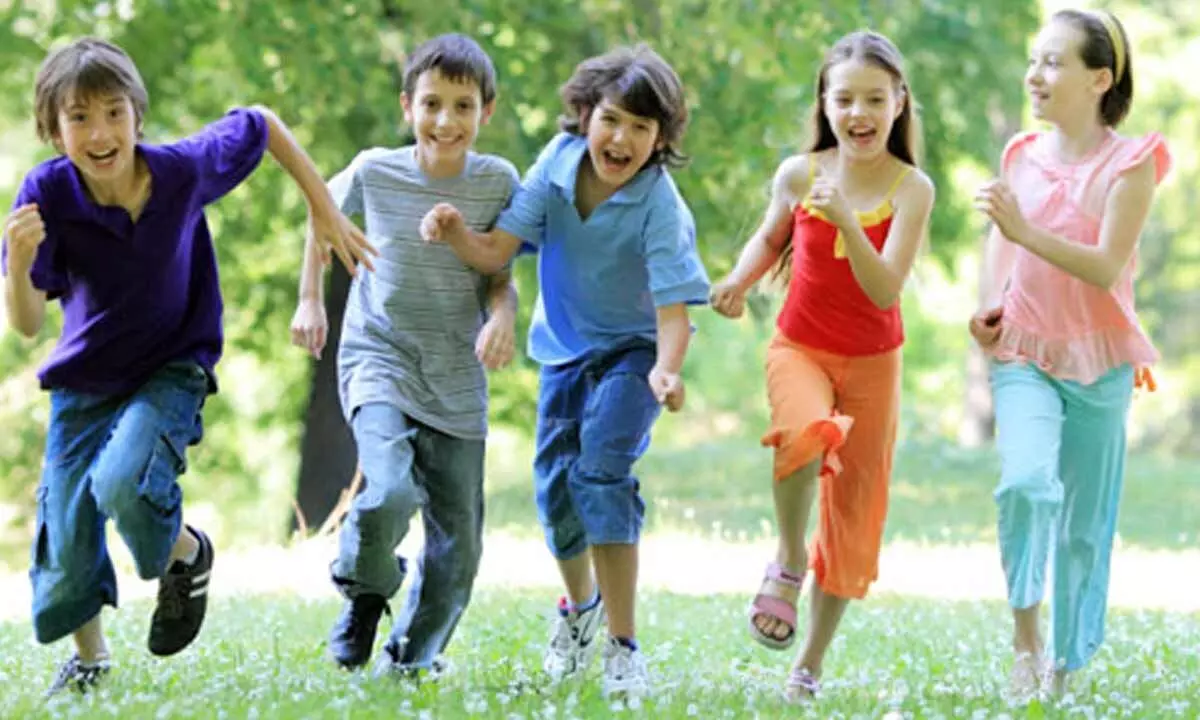Pandemic hits kids' ability to perform physical activities

Pandemic hits kids’ ability to perform physical activities
During the pandemic, children, like adults, increased the time they spent looking at television, smartphone, and computer screens, exercised less, and slept less
The activity restrictions during the pandemic have led to a decrease in children's ability to perform physical activities and maintain body balance, new research has found.
A team of researchers from Nagoya University in central Japan investigated how restrictions on children's activities during the pandemic affected their life habits and their abilities to perform physical activities. By comparing medical examination data before and after the onset of the pandemic, they found that the physical functions among adolescents deteriorated, including their dynamic balance.
The study, published in International Journal of Environmental Research and Public Health, also found that the children had higher body fat levels and worse life habits. Rather than a lack of exercise time, this may have been because of a lack of quality exercise due to activity restrictions.
"Since the outbreak of the novel coronavirus, children have not been able to engage in sufficient physical education, sports activities, and outdoor play at school. It became clear that balance ability during movement was easily affected, lifestyle habits were disrupted, and the percentage of body fat was likely to increase," explained visiting researcher Tadashi Ito.
"This may have been because of shorter outdoor playtime and club activities, which impeded children's ability to learn the motor skills necessary to balance during movement," Ito added.
During the pandemic, children, like adults, increased the time they spent looking at television, smartphone, and computer screens, exercised less, and slept less.
Such changes in lifestyle can harm adolescent bodies, leading to weight gain and health problems.
Ito and his team conducted a study of Japanese children and students in elementary and junior high schools, aged 9-15, by analysing data from physical examinations before and during the pandemic.
They evaluated the children's muscle strength, dynamic balance functions, walking speed, body fat percentage, screen time, sleep time, quality of life, and physical activity time. The researchers found that after the onset of the pandemic, children were more likely to have decreased balance ability when moving, larger body fat percentage, report spending more time looking at TV, computers or smartphones, and sleep less.
"Limitations on children's opportunities for physical activity because of the outbreak of the novel coronavirus have had a significant impact on the development of physical function and lifestyle and may cause physical deterioration and health problems in the future," warned Ito.
"Especially, the risk of injury to children may increase because of a reduced dynamic balance function," the researcher noted.
Even after the novel coronavirus becomes endemic, it is important to consider the effects of social restrictions on the body composition of adolescents, they added.

















